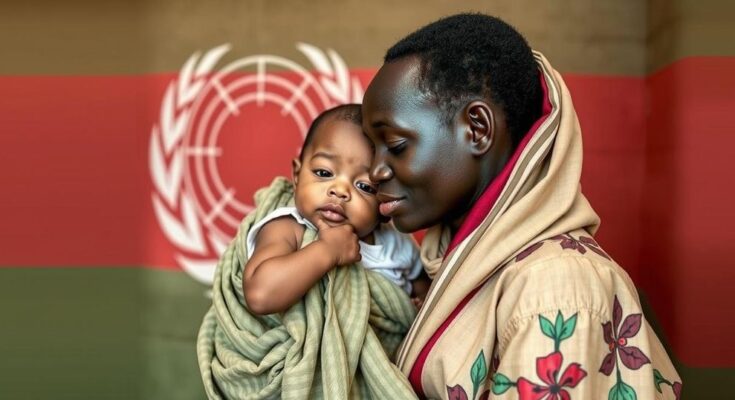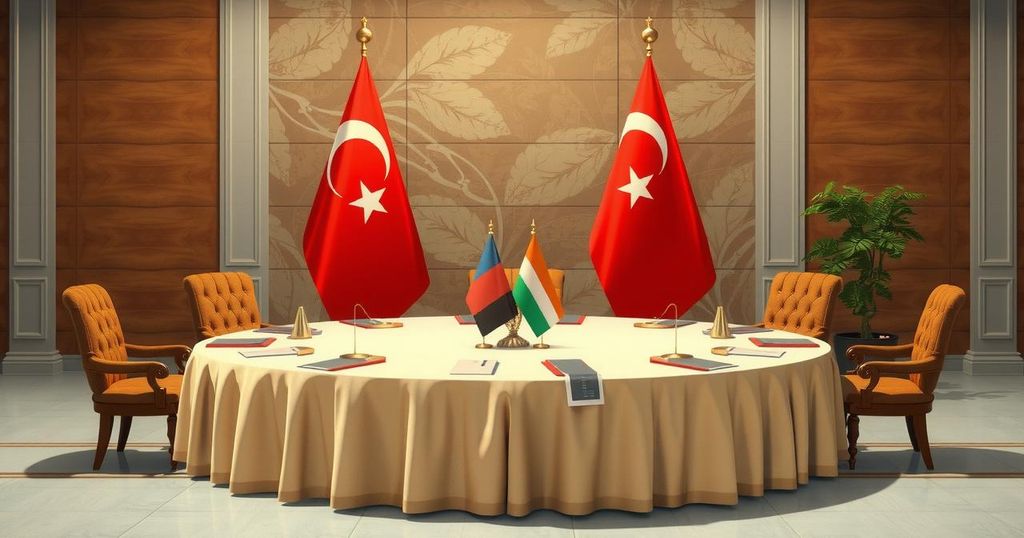The Sudanese government has rejected a UN-backed IPC report declaring famine conditions affecting 638,000 people due to ongoing conflict. The government criticized the IPC for lack of updated data and procedural transparency, while tens of millions face acute food insecurity amid humanitarian access barriers. Both warring factions have been accused of using starvation as a weapon.
The government of Sudan has officially rejected a United Nations-backed declaration regarding famine conditions in the country. Following a report from the Integrated Food Security Phase Classification (IPC), which indicated that famine had affected five regions of Sudan due to ongoing conflict, the government stated that the IPC’s assessment was “essentially speculative.” They argued that the IPC lacked updated field data and did not collaborate with the government’s technical team before releasing its findings.
Amid a devastating civil war, the Sudanese government asserts its position from Port Sudan, as the capital, Khartoum, is heavily affected by combat. With more than 24.6 million inhabitants facing acute food insecurity, they have been accused of obstructing international humanitarian assessments and imposing obstacles to aid organizations attempting to provide relief in different regions. Notably, both the Sudanese army and the paramilitary Rapid Support Forces (RSF) are charged with leveraging starvation as a tactic of warfare in this ongoing crisis.
Despite the government’s dismissal of the IPC’s report, human rights organizations underscore the dire humanitarian crisis affecting millions, as the ongoing conflict has resulted in substantial loss of life and displacement. International bodies, like the International Rescue Committee, report that the government is impeding humanitarian access under the guise of its recognized status. Tensions remain high as Sudan grapples with both the administrative challenges of governance and the pressing needs of its population.
The rejection of the IPC report by the Sudanese government comes in the context of a prolonged civil war that erupted in April 2023, pitting the Sudanese army against the Rapid Support Forces. The resulting conflict has led to immense humanitarian suffering, with widespread famine threatening a significant portion of the population. The IPC, an essential tool for assessing food security, reported that severe famine conditions had materialized, affecting hundreds of thousands and exacerbating the already dire needs of millions more. The Sudanese government’s resistance to this characterization highlights the complexities of humanitarian access and the implications of war on food security.
In conclusion, the Sudanese government’s denial of the famine situation as reported by the IPC underscores a wider humanitarian struggle exacerbated by civil conflict. The report pointed to catastrophic food insecurity affecting millions, yet the government’s pushback raises questions about transparency and cooperation with international aid efforts. As the situation evolves, the plight of those affected by the war remains at the forefront of humanitarian concerns, necessitating urgent action to alleviate suffering.
Original Source: jordantimes.com




